Coronavirus Seder: 15 Meditations
Why Is This Year Different from All Other Years?
- April 2, 2020
- |
- 8 Nisan 5780
Rabbi YY Jacobson
2496 views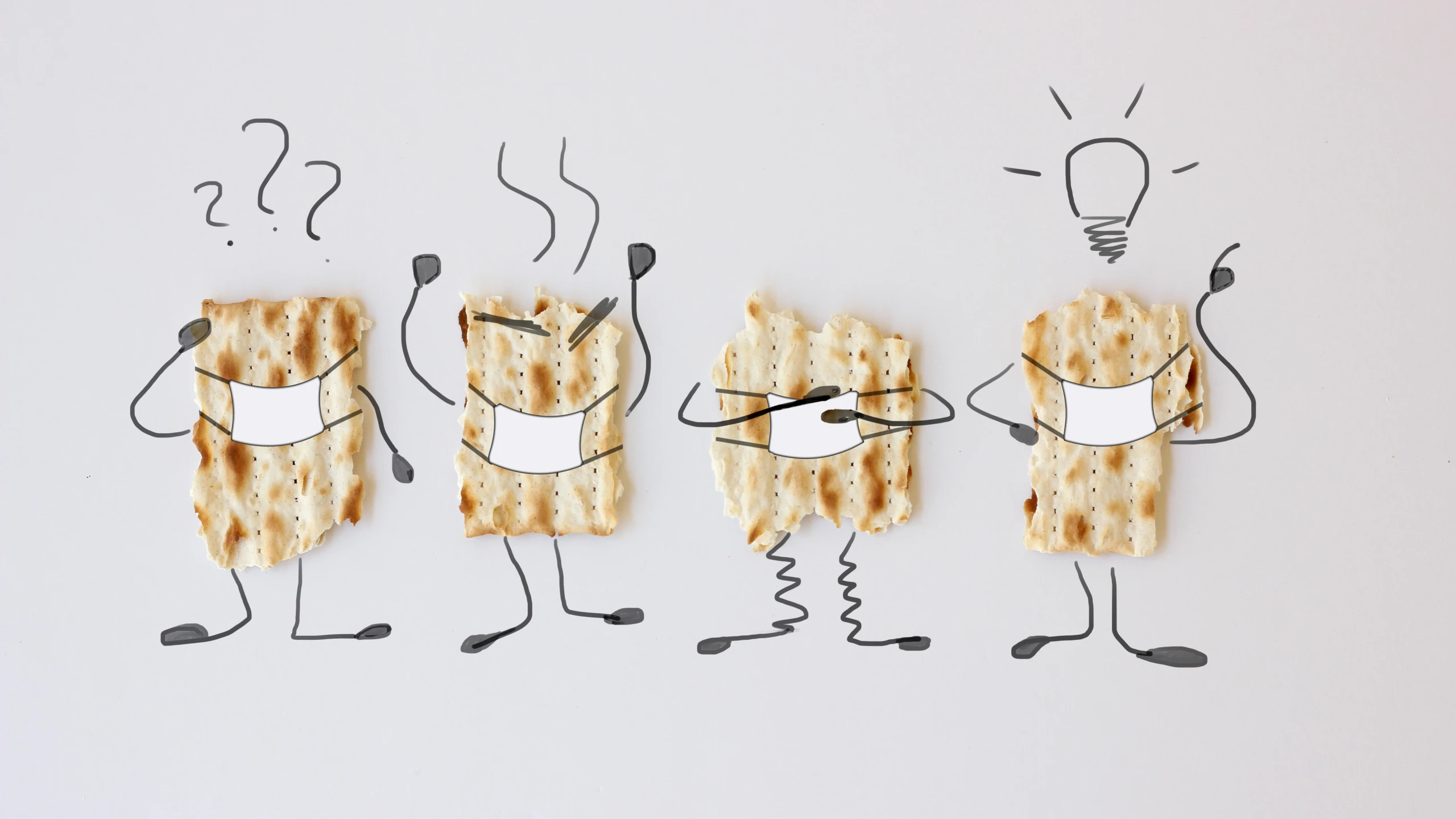
Illustration of the four sons wearing masks on pieces of Matzah

Coronavirus Seder: 15 Meditations
Why Is This Year Different from All Other Years?
Rabbi YY Jacobson
- April 2, 2020
Mah Nishtana? Why is this year different from all other years?
That in all other years, families and communities unite at the Passover table. This year, so many of us are alone.
That in all other years, our synagogues are bustling with people during the holiday. This year, our houses of worship are silent.
That in all other years, the days before Passover are filled with excitement, in addition to the stress. This year, we are reeling in the face of devastating tragedies. This seder is conducted in the shadow of solitariness and pain.
That in all other years, we begin our seder with the declaration, “whoever is in need, let him come and eat.” This year, our doors are locked.
How do we conduct a seder in the presence of a Covid-19? Here are the 15-steps of the Passover Seder for 2020.
Kadesh -- recite the Kiddush, invite sanctity into your life:
Designate a space in your psyche that is always wholesome, sacred, pure, innocent, and child-like. Go back to your core—to that place in your soul which even the coronavirus can’t destroy. When all external layers are shed, who are you in your essence?
Urchatz -- wash your hands:
Wash your hands again and again, physically and emotionally. Being quarantined gives me an opportunity to clean my hands from all forms of un-cleanliness. Cleanse your life from lying, cheating, betraying, immoral relationships, destructive addictions, etc.
Karpas -- eat a vegetable dipped in salt water:
The vegetable growing low from the ground symbolizes the body, created from earth (adamah). Dip your body into the waters of authentic wisdom, inspiration and Torah. See your body as a conduit for your soul; a channel for you to fulfill your mission in this world.
Yachatz -- break the matzah:
Humility and vulnerability is the message of this fourth step. Strip yourself from pompousness and haughtiness. Get real. During this period, allow yourself to be vulnerable.
Magid -- recite the Haggadah:
Tell the story of our people. We have been around for 4000 years, enduring every conceivable plague in history—and we are still here. We were sustained by the power of love, hope and faith.
Rochtzah -- wash your hands:
Wash your hands, yet again.
You see, 2000 years ago the Rabbis wanted us to wash our hands at least twice during he seder!
Motzei -- recite the blessing HaMotzi, “He extracted bread from the earth:”
Do not take your life for granted. You have bread on the table, it came from grain, which grew in the fields. You will eat it, your digestive system will break it apart, and your 30 trillion red blood cells will carry its nutrients to trillions of cells. Be mindful of the miracle of life, and say thank you.
Matzah -- recite the blessing on the matzah and eat it:
The Talmud describes matzah as "bread of poverty," pristine flower and water without yeast. This is what we consume on the night of our liberation, because freedom happens when I can discover who I am at my core, without all the accessories.
Maror -- eat the bitter herbs:
Feel the pain and the bitterness, and the jumble of emotions that come with this pandemic. Cry for the people suffering, reeling from loss or illness. During the coming days and weeks, phone each day five lonely people and offer them love and empathy. Tell them you are thinking of them and praying for them.
Korach -- eat a sandwich of matzah and maror (in ancient times together with the Passover lamb):
Life is a roller-coaster of beautiful and rich moments (Passover lamb), bland moments (unleavened matzah), and painful moments (bitter herbs). As a virus rages, we must learn how to sandwich all of life into a single mosaic. We cry for the pain and the loss, but we also celebrate the silver linings, and are grateful for all the blessings.
Shulchan Orach – set the table and eat the festive meal with your loved ones:
Coronavirus sent us all home—for a long period of time. Apparently, G-d wants us to do some work in this quarantined region we call home. Do I need to work on my marriage? Do I need to enhance my relationships with my children? Do I need to learn to relax? Do I need to let go? Can we just sit around the table and bond?
Tzafun -- eat the hidden afikoman:
At this point in the Seder, we eat the hidden Afikoman. During this crisis of Covid-19, we are each given an opportunity work on our inner skeletons and change ourselves from within. There are emotional and spiritual viruses in me which I must tackle and extricate.
Beirach -- recite grace:
Show gratitude. Meditate and say thank you for all the blessings in your life, from your lungs inhaling, to having a bed to sleep on.
Halel -- recite psalms of praise:
Every breath you take and every move you make is an opportunity for praise and thanksgiving. One invisible virus changed the entire world. How many things must go right every day, every second, for our planet to function normally?
Nitrtzah – Our service is pleasing to our Divine Creator:
Our lives are not random. Even a mad virus is not arbitrary. Every moment has purpose; every one of our lives is part of the cosmic symphony. Ask yourself, I’m I fulfilling the purpose of my creation?
G-d's desire in creating the world was that we build a personal, intimate relationship with Him and that we transform our animal soul and our world into a Divine abode, into a world of goodness, kindness and love.
Next year in Jerusalem!
- Comment
Class Summary:
Published for Passover 2020. Why Is This Year Different from All Other Years?
Dedicated in the merit of Tzvi Chaim ben Helene Shaindel
Beracha Yuta bas Mirel
Eliyahu Eliezer ben Beracha Yuta
For a complete and speedy recovery
Mah Nishtana? Why is this year different from all other years?
That in all other years, families and communities unite at the Passover table. This year, so many of us are alone.
That in all other years, our synagogues are bustling with people during the holiday. This year, our houses of worship are silent.
That in all other years, the days before Passover are filled with excitement, in addition to the stress. This year, we are reeling in the face of devastating tragedies. This seder is conducted in the shadow of solitariness and pain.
That in all other years, we begin our seder with the declaration, “whoever is in need, let him come and eat.” This year, our doors are locked.
How do we conduct a seder in the presence of a Covid-19? Here are the 15-steps of the Passover Seder for 2020.
Kadesh -- recite the Kiddush, invite sanctity into your life:
Designate a space in your psyche that is always wholesome, sacred, pure, innocent, and child-like. Go back to your core—to that place in your soul which even the coronavirus can’t destroy. When all external layers are shed, who are you in your essence?
Urchatz -- wash your hands:
Wash your hands again and again, physically and emotionally. Being quarantined gives me an opportunity to clean my hands from all forms of un-cleanliness. Cleanse your life from lying, cheating, betraying, immoral relationships, destructive addictions, etc.
Karpas -- eat a vegetable dipped in salt water:
The vegetable growing low from the ground symbolizes the body, created from earth (adamah). Dip your body into the waters of authentic wisdom, inspiration and Torah. See your body as a conduit for your soul; a channel for you to fulfill your mission in this world.
Yachatz -- break the matzah:
Humility and vulnerability is the message of this fourth step. Strip yourself from pompousness and haughtiness. Get real. During this period, allow yourself to be vulnerable.
Magid -- recite the Haggadah:
Tell the story of our people. We have been around for 4000 years, enduring every conceivable plague in history—and we are still here. We were sustained by the power of love, hope and faith.
Rochtzah -- wash your hands:
Wash your hands, yet again.
You see, 2000 years ago the Rabbis wanted us to wash our hands at least twice during he seder!
Motzei -- recite the blessing HaMotzi, “He extracted bread from the earth:”
Do not take your life for granted. You have bread on the table, it came from grain, which grew in the fields. You will eat it, your digestive system will break it apart, and your 30 trillion red blood cells will carry its nutrients to trillions of cells. Be mindful of the miracle of life, and say thank you.
Matzah -- recite the blessing on the matzah and eat it:
The Talmud describes matzah as "bread of poverty," pristine flower and water without yeast. This is what we consume on the night of our liberation, because freedom happens when I can discover who I am at my core, without all the accessories.
Maror -- eat the bitter herbs:
Feel the pain and the bitterness, and the jumble of emotions that come with this pandemic. Cry for the people suffering, reeling from loss or illness. During the coming days and weeks, phone each day five lonely people and offer them love and empathy. Tell them you are thinking of them and praying for them.
Korach -- eat a sandwich of matzah and maror (in ancient times together with the Passover lamb):
Life is a roller-coaster of beautiful and rich moments (Passover lamb), bland moments (unleavened matzah), and painful moments (bitter herbs). As a virus rages, we must learn how to sandwich all of life into a single mosaic. We cry for the pain and the loss, but we also celebrate the silver linings, and are grateful for all the blessings.
Shulchan Orach – set the table and eat the festive meal with your loved ones:
Coronavirus sent us all home—for a long period of time. Apparently, G-d wants us to do some work in this quarantined region we call home. Do I need to work on my marriage? Do I need to enhance my relationships with my children? Do I need to learn to relax? Do I need to let go? Can we just sit around the table and bond?
Tzafun -- eat the hidden afikoman:
At this point in the Seder, we eat the hidden Afikoman. During this crisis of Covid-19, we are each given an opportunity work on our inner skeletons and change ourselves from within. There are emotional and spiritual viruses in me which I must tackle and extricate.
Beirach -- recite grace:
Show gratitude. Meditate and say thank you for all the blessings in your life, from your lungs inhaling, to having a bed to sleep on.
Halel -- recite psalms of praise:
Every breath you take and every move you make is an opportunity for praise and thanksgiving. One invisible virus changed the entire world. How many things must go right every day, every second, for our planet to function normally?
Nitrtzah – Our service is pleasing to our Divine Creator:
Our lives are not random. Even a mad virus is not arbitrary. Every moment has purpose; every one of our lives is part of the cosmic symphony. Ask yourself, I’m I fulfilling the purpose of my creation?
G-d's desire in creating the world was that we build a personal, intimate relationship with Him and that we transform our animal soul and our world into a Divine abode, into a world of goodness, kindness and love.
Next year in Jerusalem!
Pesach Essay
Rabbi YY Jacobson
- April 2, 2020
- |
- 8 Nisan 5780
- |
- 2496 views

Coronavirus Seder: 15 Meditations
Why Is This Year Different from All Other Years?
Rabbi YY Jacobson
- April 2, 2020
Mah Nishtana? Why is this year different from all other years?
That in all other years, families and communities unite at the Passover table. This year, so many of us are alone.
That in all other years, our synagogues are bustling with people during the holiday. This year, our houses of worship are silent.
That in all other years, the days before Passover are filled with excitement, in addition to the stress. This year, we are reeling in the face of devastating tragedies. This seder is conducted in the shadow of solitariness and pain.
That in all other years, we begin our seder with the declaration, “whoever is in need, let him come and eat.” This year, our doors are locked.
How do we conduct a seder in the presence of a Covid-19? Here are the 15-steps of the Passover Seder for 2020.
Kadesh -- recite the Kiddush, invite sanctity into your life:
Designate a space in your psyche that is always wholesome, sacred, pure, innocent, and child-like. Go back to your core—to that place in your soul which even the coronavirus can’t destroy. When all external layers are shed, who are you in your essence?
Urchatz -- wash your hands:
Wash your hands again and again, physically and emotionally. Being quarantined gives me an opportunity to clean my hands from all forms of un-cleanliness. Cleanse your life from lying, cheating, betraying, immoral relationships, destructive addictions, etc.
Karpas -- eat a vegetable dipped in salt water:
The vegetable growing low from the ground symbolizes the body, created from earth (adamah). Dip your body into the waters of authentic wisdom, inspiration and Torah. See your body as a conduit for your soul; a channel for you to fulfill your mission in this world.
Yachatz -- break the matzah:
Humility and vulnerability is the message of this fourth step. Strip yourself from pompousness and haughtiness. Get real. During this period, allow yourself to be vulnerable.
Magid -- recite the Haggadah:
Tell the story of our people. We have been around for 4000 years, enduring every conceivable plague in history—and we are still here. We were sustained by the power of love, hope and faith.
Rochtzah -- wash your hands:
Wash your hands, yet again.
You see, 2000 years ago the Rabbis wanted us to wash our hands at least twice during he seder!
Motzei -- recite the blessing HaMotzi, “He extracted bread from the earth:”
Do not take your life for granted. You have bread on the table, it came from grain, which grew in the fields. You will eat it, your digestive system will break it apart, and your 30 trillion red blood cells will carry its nutrients to trillions of cells. Be mindful of the miracle of life, and say thank you.
Matzah -- recite the blessing on the matzah and eat it:
The Talmud describes matzah as "bread of poverty," pristine flower and water without yeast. This is what we consume on the night of our liberation, because freedom happens when I can discover who I am at my core, without all the accessories.
Maror -- eat the bitter herbs:
Feel the pain and the bitterness, and the jumble of emotions that come with this pandemic. Cry for the people suffering, reeling from loss or illness. During the coming days and weeks, phone each day five lonely people and offer them love and empathy. Tell them you are thinking of them and praying for them.
Korach -- eat a sandwich of matzah and maror (in ancient times together with the Passover lamb):
Life is a roller-coaster of beautiful and rich moments (Passover lamb), bland moments (unleavened matzah), and painful moments (bitter herbs). As a virus rages, we must learn how to sandwich all of life into a single mosaic. We cry for the pain and the loss, but we also celebrate the silver linings, and are grateful for all the blessings.
Shulchan Orach – set the table and eat the festive meal with your loved ones:
Coronavirus sent us all home—for a long period of time. Apparently, G-d wants us to do some work in this quarantined region we call home. Do I need to work on my marriage? Do I need to enhance my relationships with my children? Do I need to learn to relax? Do I need to let go? Can we just sit around the table and bond?
Tzafun -- eat the hidden afikoman:
At this point in the Seder, we eat the hidden Afikoman. During this crisis of Covid-19, we are each given an opportunity work on our inner skeletons and change ourselves from within. There are emotional and spiritual viruses in me which I must tackle and extricate.
Beirach -- recite grace:
Show gratitude. Meditate and say thank you for all the blessings in your life, from your lungs inhaling, to having a bed to sleep on.
Halel -- recite psalms of praise:
Every breath you take and every move you make is an opportunity for praise and thanksgiving. One invisible virus changed the entire world. How many things must go right every day, every second, for our planet to function normally?
Nitrtzah – Our service is pleasing to our Divine Creator:
Our lives are not random. Even a mad virus is not arbitrary. Every moment has purpose; every one of our lives is part of the cosmic symphony. Ask yourself, I’m I fulfilling the purpose of my creation?
G-d's desire in creating the world was that we build a personal, intimate relationship with Him and that we transform our animal soul and our world into a Divine abode, into a world of goodness, kindness and love.
Next year in Jerusalem!
- Comment
Dedicated in the merit of Tzvi Chaim ben Helene Shaindel
Beracha Yuta bas Mirel
Eliyahu Eliezer ben Beracha Yuta
For a complete and speedy recovery
Class Summary:
Published for Passover 2020. Why Is This Year Different from All Other Years?
Related Classes
Please help us continue our work
Sign up to receive latest content by Rabbi YY
Join our WhatsApp Community
Join our WhatsApp Community



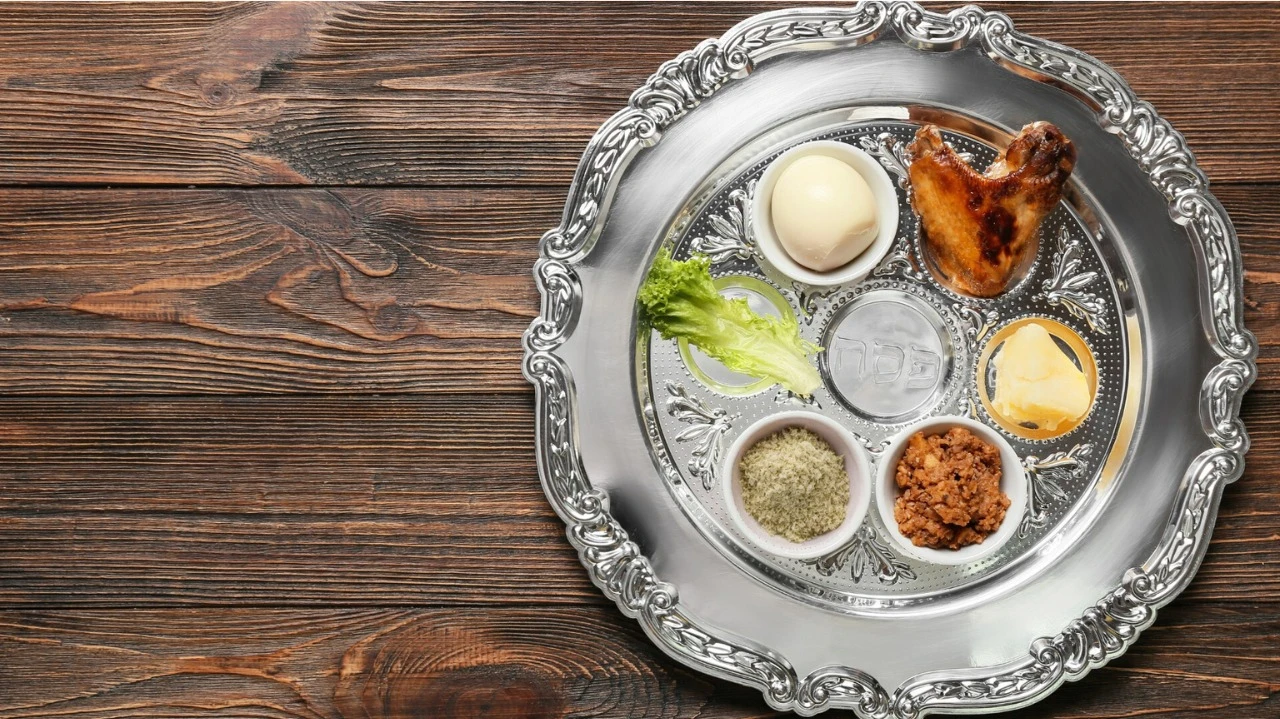


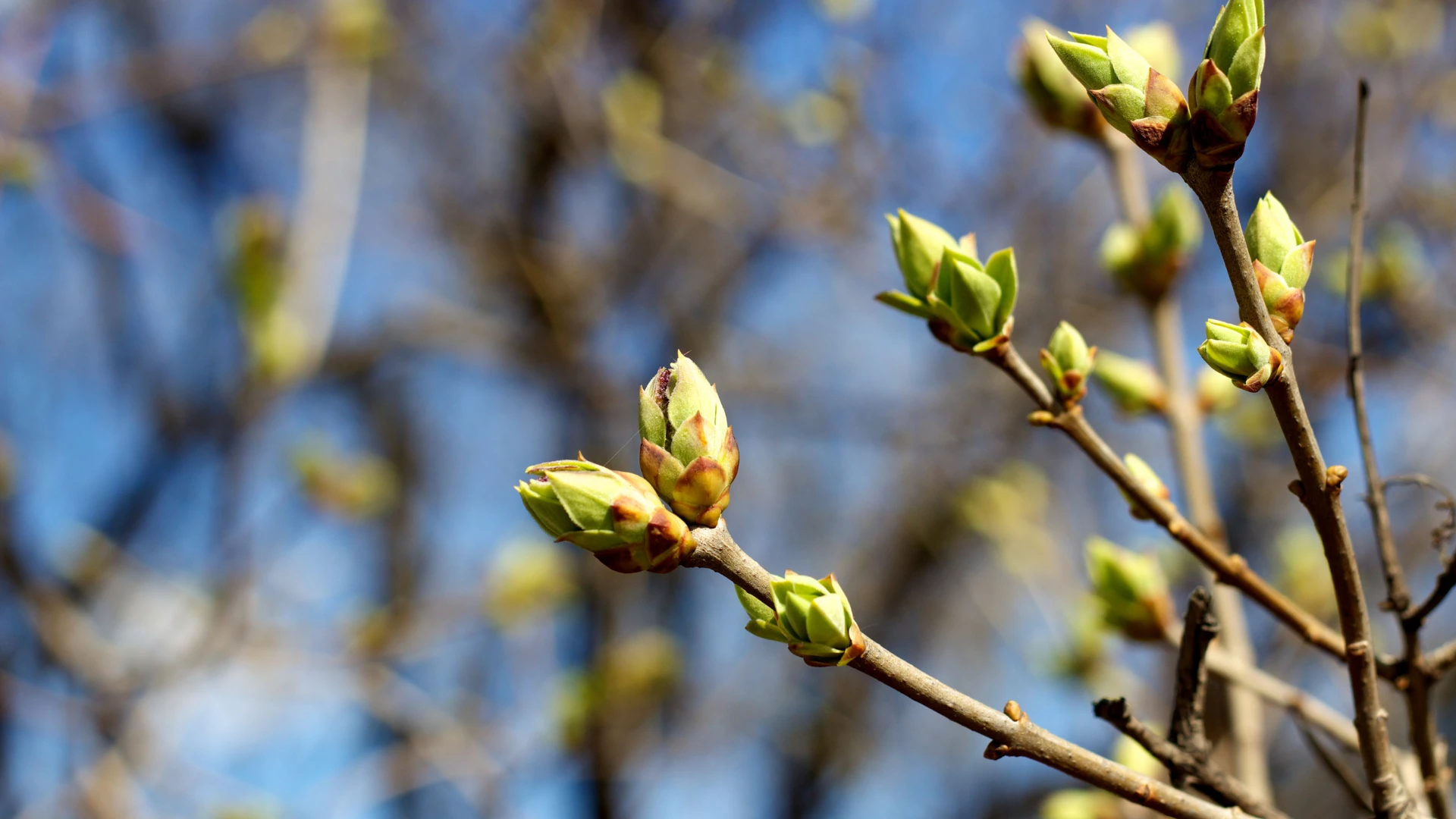
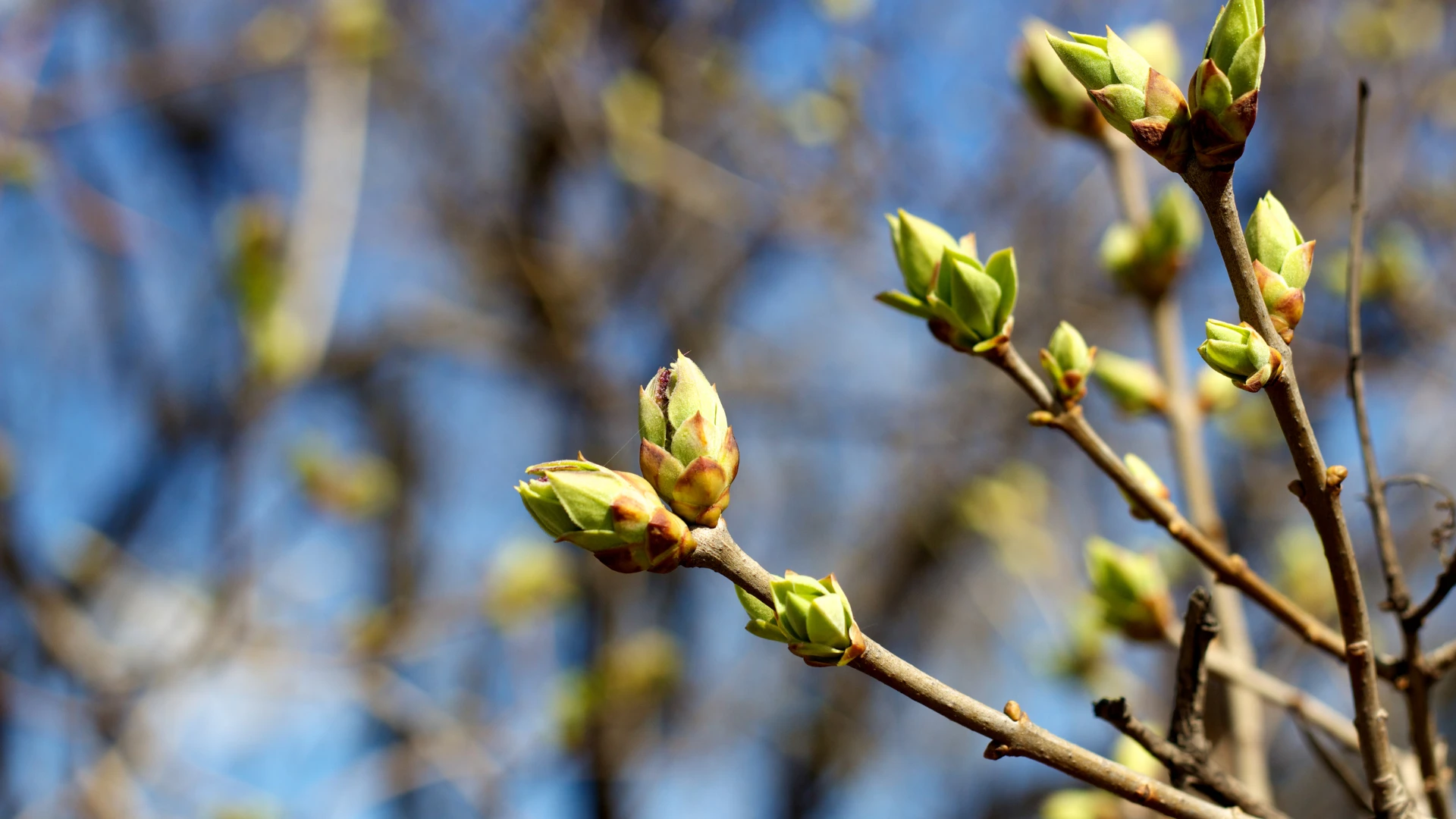
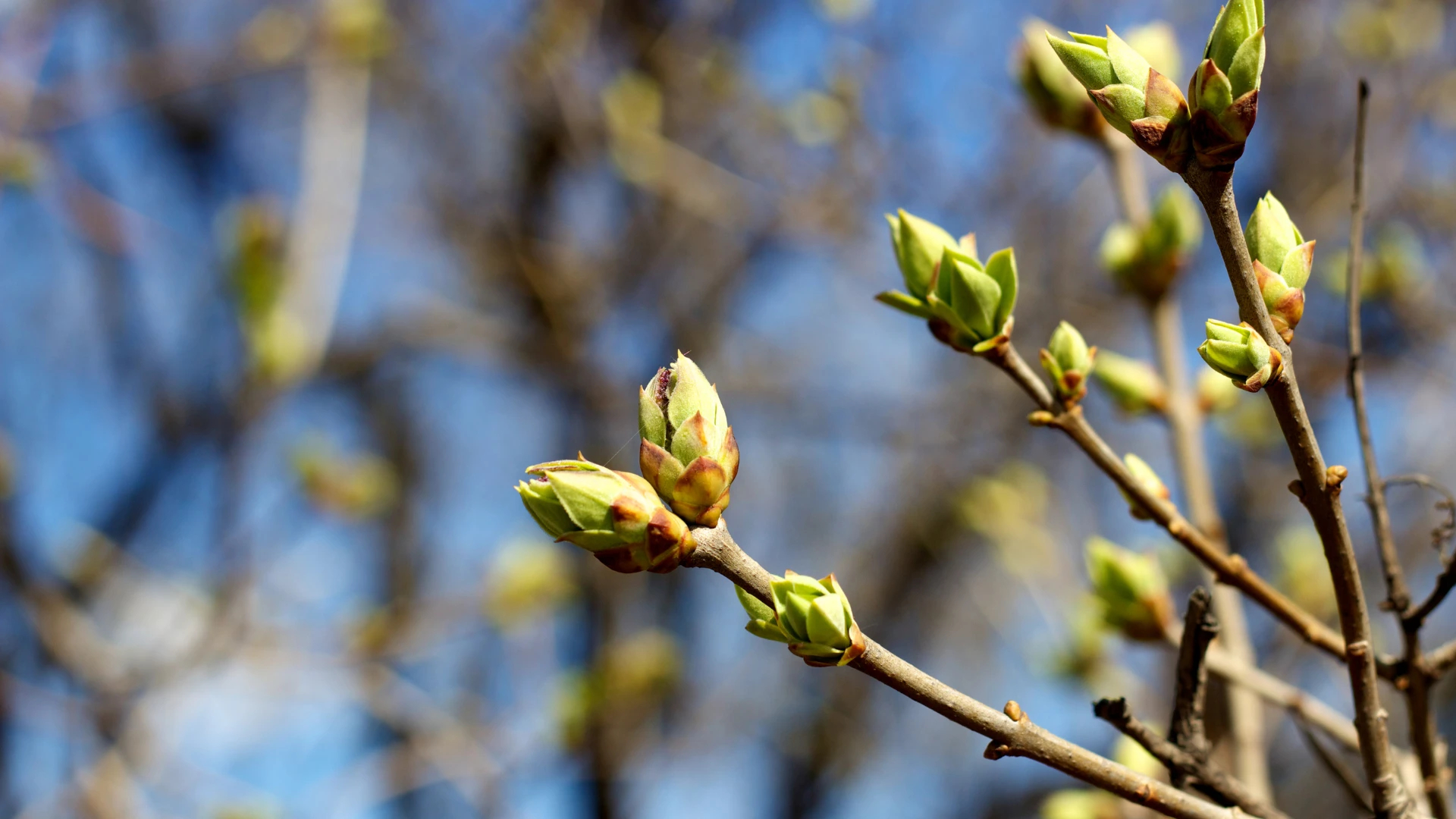
Please leave your comment below!
nicole green -4 years ago
thank you Rabbi YY for another gem that , with your permission I will forward to all the groups I am part of ! I taught on Zoom on Thursday my regular shiur but this time it was 2 of your earlier talks that formed the basis of my shiur and I thank you again for your scholarship and your sensitivity, always looking for the human element in every aspect of Torah! The shiur was tremendously appreciated and special reference was made to your amazing contribution! Wishing a safe and healthy and kosher holiday of Pesach with all your family! May we greet Moshiach tsidkeinu and go finally out of this difficult galus tekef umiyad mamash!
Reply to this comment.Flag this comment.
Anonymous -4 years ago
Of course forward.
Reply to this comment.Flag this comment.
Levi -4 years ago
Yashar Koach
But why not THIS year in Jerusalem?
Gut Shabbos and warm regards
Reply to this comment.Flag this comment.
Benji -4 years ago
Just wanted to say a big big thank you for all of the koach you put into your shiurim. I’ve been following the latest chassidus morning shiurim Matza Zu which has given so much insight into our structure and make up as yidden. Also the shiurim have added much more to the overall structure and Seder in learning chassidus, being able to see concepts like Makif, Pnimi, nefesh, Ruach etc. In a systematic way rather than just a chulent of concepts that were hard for me to piece together in the past. Also specifically the advice you reiterate in the shiurim about growing honestly knowing which level your holding instead of reaching for the stars eventually not succeeding in where we are right now. That’s something i have personally struggled with for a long time while in Yeshiva and also now while out- always feeling I have to be somewhere higher, loftier, holier etc... the concepts of the different Avadim and how each level has its Maalah is a breath of fresh air to know and recognize which rung were shayach to at the moment and to know that it is a good rung.
Thank you for teaching and sharing with us the gift of Chassidus, perspective, life.
Reply to this comment.Flag this comment.
Rabbi Chaim -4 years ago
Please Rabbi YY stop using that word all the time.
The Ben Ish Chai says negative words carry negative energies.
Good Shabbos.
Reply to this comment.Flag this comment.
Sholom -4 years ago
Rabbi Jacobson!
Reply to this comment.Flag this comment.
RobHodges -4 years ago
Thank you so much for these precious thoughts. We shall use them when we celebrate Passover. We are Christians, but consider ourselves as spiritual Jews, and see our Jewish Saviour, Jesus, clearly in Passover. Thank you again and may you find blessings during Passover this year.
Reply to this comment.Flag this comment.
Yehudah Goldstein -4 years ago
Nice. Wonderful meditations really worth putting to use. A call to tshuvah and deep consideration. Thank you, R' YY. And I hope that it will be this year in Yerushalayim.
Reply to this comment.Flag this comment.
Sabrina Paradis -4 years ago
You are a chasidic warrior. Never ever stop fighting for us and our Judaism. I have always been a proud Jew. Proud of Israel and my Lithuanian background. Listening to your talks have made me thirst for more and even more knowledge. This would never have happened if not for your passion. Keep going Rabbi
Reply to this comment.Flag this comment.